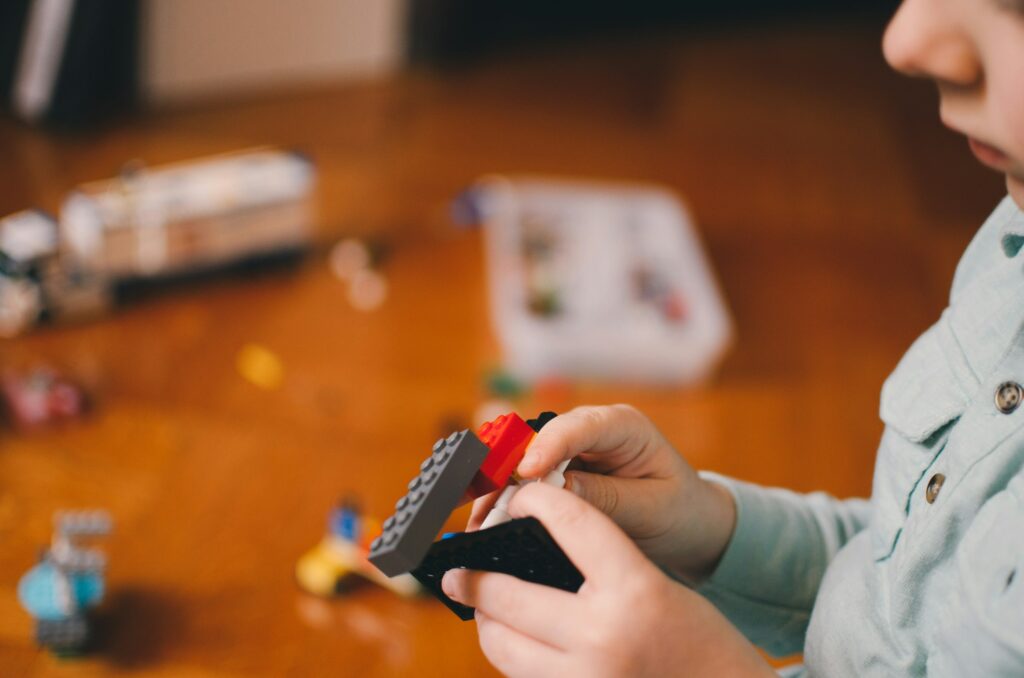
Parents of young children often lament that their kids are not good at playing independently. Here are a few tips that might help.
- Don’t underestimate the power of ‘less is more’. If your child’s bedroom or playroom is crammed full of toys this may be overwhelming and your child may simply not know where to start with their play. Also, too many toys can encourage kids to jump from activity to activity rather than engaging in deep play where their imagination takes flight, and they participate in prolonged play. You may need to clean up their space, get rid of many of their toys (or rotate them) so that toys and games can be shelved without clutter for easy access and pack away. Also, only leave the toys that get played with, get rid of the rest.
- Help siblings to play together. This may take some scaffolding to begin with but when children work out that they have a playmate living with them they can often play happily for longer. This may take some conflict resolution training but with support, can be a really good way to get kids to play happily and independently.
- Don’t expect your child to independent play for too long. Many parents would love a couple of hours off while their child plays quietly on their own. Unfortunately for most parents, this is not a realistic goal for young kids.
- Other kids might help. Find a child or a family with children who play well with your child. Sometimes having a friend over can open new possibilities for play that simply don’t exist when your child is alone. You may find your kids play with other kids independently for longer than they do when on their own.
- Add novelty. Consider the possibilities that kids can come up with using a large box, some freshly made playdough, some books, toys or games from the library, watercolour paints, new craft supplies, polymer clay, bed sheets to build cubby houses, a problem to solve, or an investigation. All these things can introduce novel play to your child and keep them engaged for longer.
- Practice. Kid’s need practice at amusing themselves. If you pass them a screen everytime they are bored or have nothing to do, they are unlikely to develop the skills necessary to entertain themselves. When you’re with your child waiting at the doctor’s surgery, lining up at the bank, or driving in the car, teach them to use their imaginations to fill the time. Play games with them, chat with them, give them a mental challenge, observe their surroundings, point out social interactions that are occurring and explain things to them. This will help them learn to tolerate boredom and also make them aware that they can amuse themselves.
Do you think that you, or your child, would benefit from the support of a psychologist? Call or email Lifeworks Psychology today – (08) 9382 3645 admin@lifeworkspsych.com.au
